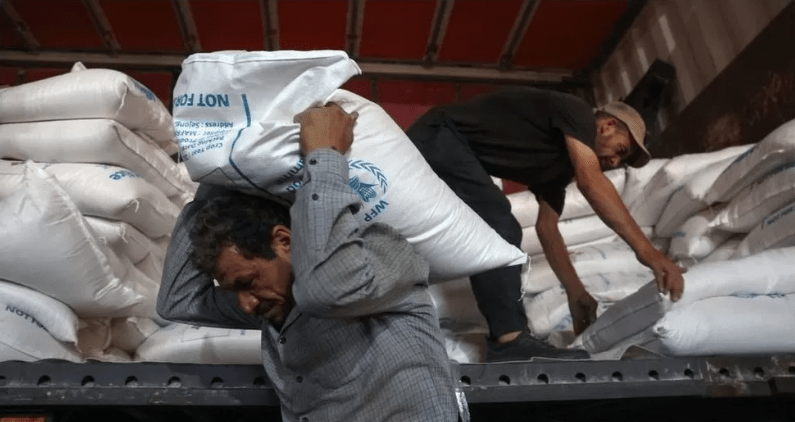UN deems the conditions of Syria’s assistance delivery offer unsatisfactory

The criteria Syria set in its offer to continue delivering supplies to rebel-held area have been deemed “unacceptable” by the United Nations.
The government of Syria, according to its envoy to the UN, will continue to let supplies to enter the nation via the Bab al-Hawa border with Turkey.
The UN Security Council has previously been unable to come to a consensus on how to keep the border crossing operational.
The distribution of supplies is necessary for almost 4.1 million people in northwest Syria.
Syrian ambassador Bassam Sabbagh said in a letter to the UN secretary general that Damascus had taken a “sovereign decision” to let supplies to pass via Bab al-Hawa for the next six months.
In “full cooperation and coordination with the Syrian government,” he added, it will enable supplies to restart.
The UN’s Office for the Coordination of Humanitarian Affairs (OCHA) said that the plan “contains two unacceptable conditions” in a document that was delivered to the Security Council and obtained by the news agencies AFP and Reuters.
It was said that the Syrian government had “stressed that the United Nations should not communicate with entities designated as ‘terrorist'” beforehand.
President Bashar al-Assad has regularly referred to any rebel organizations or opponents of his government as terrorists since the commencement of the civil conflict in Syria in 2011.
The International Committee of the Red Cross (ICRC) and the Syrian Arab Red Crescent (SARC) were to monitor and assist the delivery of all supplies in northwest Syria, according to the OCHA and Damascus.
According to the report, the situation was “neither consistent with the independence of the United Nations nor practical, as the ICRC and SARC are not present” in the region.
The Syrian government’s offer, it was noted, may serve as “a basis for the United Nations to legally conduct cross-border humanitarian operations via the Bab al-Hawa border crossing.”
Syria attempts to take command of UN assistance supplies.
After a UN split, Syria’s lifeline of help may be cut off.
Tuesday, a Security Council extension of nine months to the UN-mediated accord enabling supplies to pass via Bab al-Hawa was blocked by Russia, a crucial supporter of Syria.
The UN’s humanitarian distribution system has drawn criticism from Syria and Russia in the past for violating that country’s sovereignty.
However, Russia was unable to get sufficient backing from the Council’s 15 members for its preferred solution, a six-month extension.
The US accused Russia of “an act of utter cruelty” after it, France, and the UK requested a one-year extension.
Concerns about the Syrian government’s pledge to distribute assistance and prevent it from reaching regions controlled by the opposition were raised.
Following Syria’s declaration, UK ambassador Barbara Woodward stated, “The priority needs to be getting aid flowing again, quickly, to the people who need it – and then getting certainty over its future.”
But she said, “Without UN oversight, control of this vital lifeline has been given to the man behind the agony of the Syrian people.
Since a terrible earthquake that killed more than 4,500 people and uprooted 50,000 families in north-western Syria in February, the Bab al-Hawa lifeline has taken on even greater significance.
The UN is still free to utilize two more humanitarian crossings that were opened with the Syrian government’s permission after the earthquake until August 13 despite the deadlock over Bab al-Hawa.






